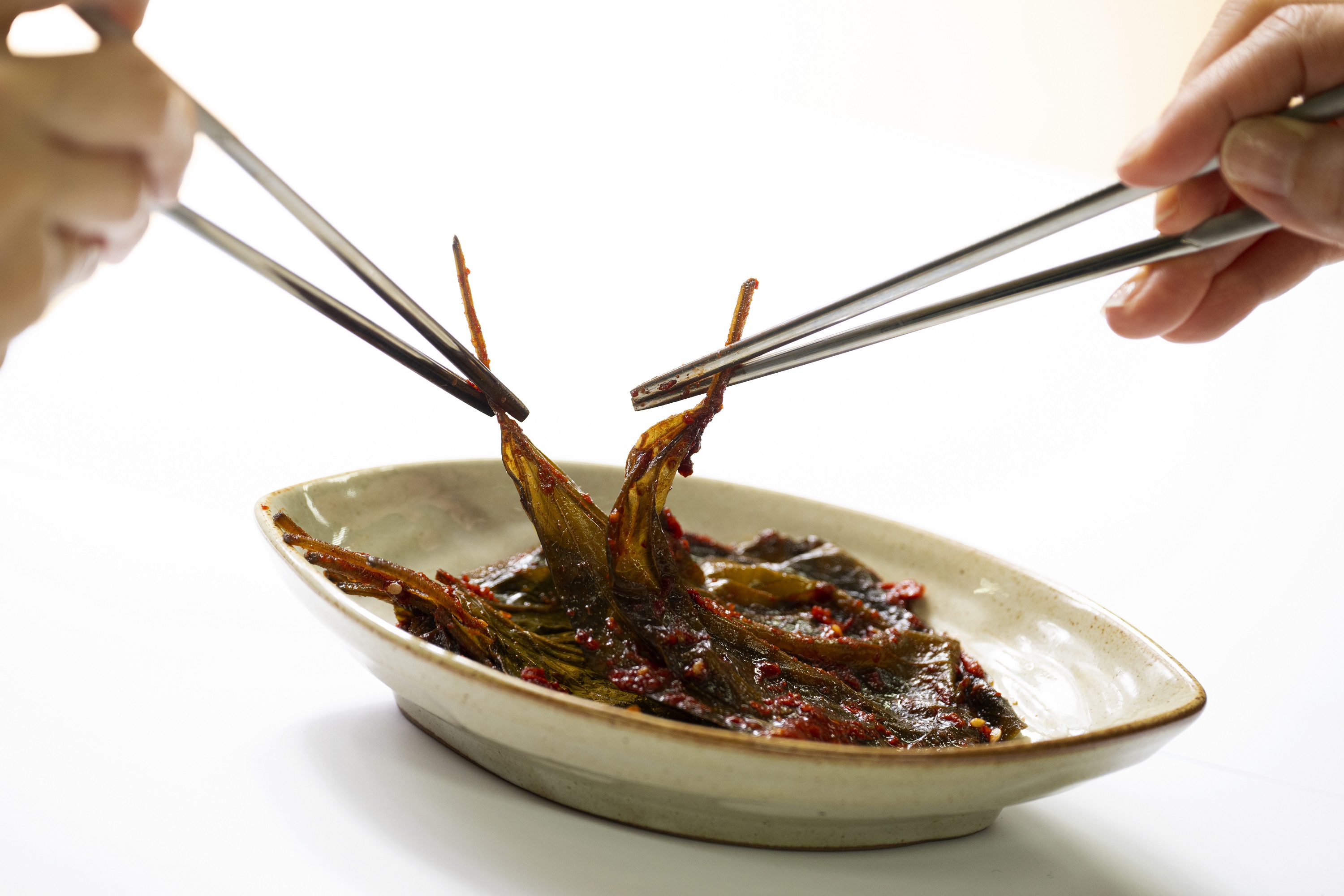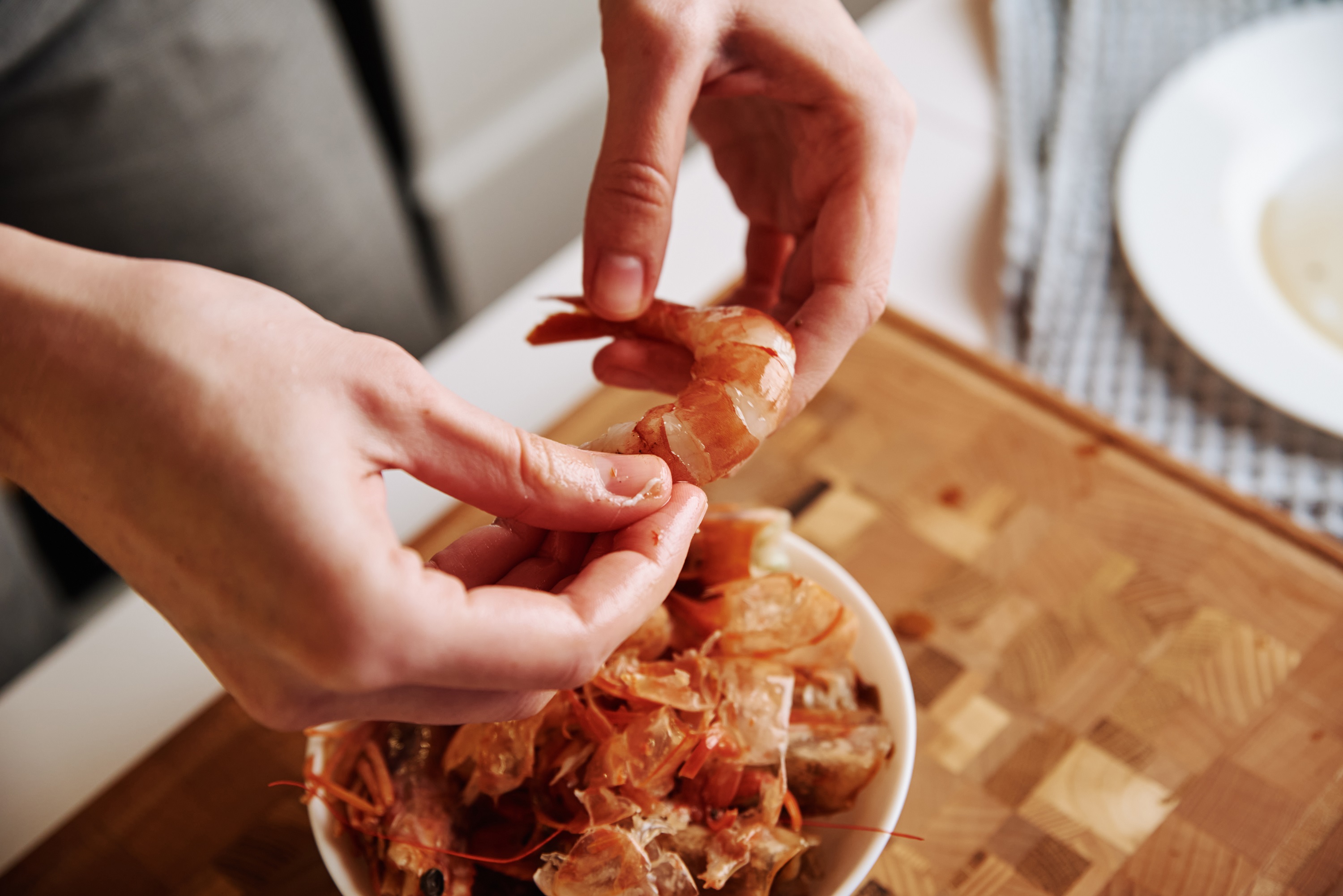[Mar] To hold or not to hold: the sticky debate over kkaennip jangajji
Date Mar 23, 2023
 Kkaennip jangajji (pickled perilla leaves) often requires two people to separate the leaves. This situation has caused heated (but never serious) debates in Korea in recent years. (Korea Times photo by Choi Won-suk)
Kkaennip jangajji (pickled perilla leaves) often requires two people to separate the leaves. This situation has caused heated (but never serious) debates in Korea in recent years. (Korea Times photo by Choi Won-suk)
In recent years Koreans, especially young ones, have been engaged in debates over hypothetical situations, mostly involving a person, his/her romantic partner and a friend of the same gender as the person.
The debates revolve around questions like this: Could you tolerate and accept your partner “kindly” helping your friend separate two pickled perilla leaves during a shared meal? Tolerant people say holding one end of a perilla leaf to help a friend peel off the one on top is no big deal, while sticklers insist the gesture is tantamount to infidelity.
Kkaennip jangajji (pickled perilla leaves) is a commonly shared side dish served at home or in restaurants. Because the sauce and fermentation cause the perilla leaves to stick together, exquisite chopstick skills are required for a person to separate them single-handedly. When someone at the table struggles to separate the top leaf, another person – usually family members or friends – helps by holding the other leaves down with chopsticks.
Some say such a gesture is only acceptable if done between relatives or others who are very close.
“Holding the leaves doesn’t mean only holding the leaves; it means my boyfriend has been paying attention to what my friend has been doing. Why is he looking at my friend so much while I’m here with him?” Jung Ji-hye, a 40-year-old office worker in Seoul, said. “Also, I don’t like the idea that they’re separating the leaves with the chopsticks they’ve been using.”
Another office worker, Park Jun-hyuk, 33, also winces at the thought.
“My girlfriend is not a kid and she can manage to separate kkaennip herself. Why does my friend care what she is doing? It should be me who holds the kkaennip for her, not my friend,” he said.
But others say holding kkaennip is no big deal and is nothing to fuss about.
“It is just a kind act. If my boyfriend and my friend are to fall in love with each other, the catalyst doesn’t need to be kkaennip but it could be anything,” 30-year-old Lee Hae-in said.
 Another debate is about a boy- or girlfriend peeling shrimp for a friend. (Courtesy of gettyimagesbank)
Another debate is about a boy- or girlfriend peeling shrimp for a friend. (Courtesy of gettyimagesbank)
The kkaennip debate has triggered similar debates.
One of them is the “shrimp debate”: If you, your partner and your friend are eating shrimp and your partner peels them for your friend, would you accept that?
Another is the “padded coat debate”: Your friend is holding bags or drinks with both hands. It is cold with the wind blowing, but the friend doesn’t have a hand free to zip up his/her padded coat. Then your partner zips it up for the friend. Would you accept that?
Regarding the trend of such debates, culture critic Ha Jae-keun said they are usually about love relationships, which is a matter of grave concerns for everybody, especially young people.
“With in-person contact becoming less frequent following the pandemic, a growing number of people are struggling to develop relationships face to face,” Ha said. “Given this, people seem to be more eager to know how other people think and feel.”
The answers to those questions vary. Some say holding kkaennip and peeling shrimp are okay, but zipping up another person’s coat is simply immoral. Others say kkaennip is okay, but there is no way for shrimp and coat zippers. Some say peeling shrimp is okay if the partner peels them for everybody at the table, while others say they would hold whatever the friend is carrying to free up his or her hands.
Well, there are no correct answers anyway. What do you think?
**If you have any questions about this article, feel free to contact us at kocis@korea.kr.**

The Ministry of Culture, Sports and Tourism's "Korea Here & Now" work can be used under the condition of "Public Nuri Type 1 (Source Indication)."




